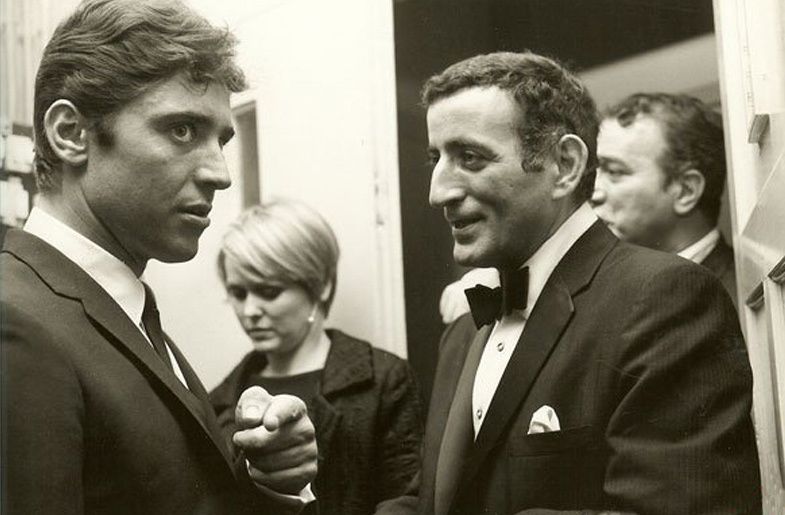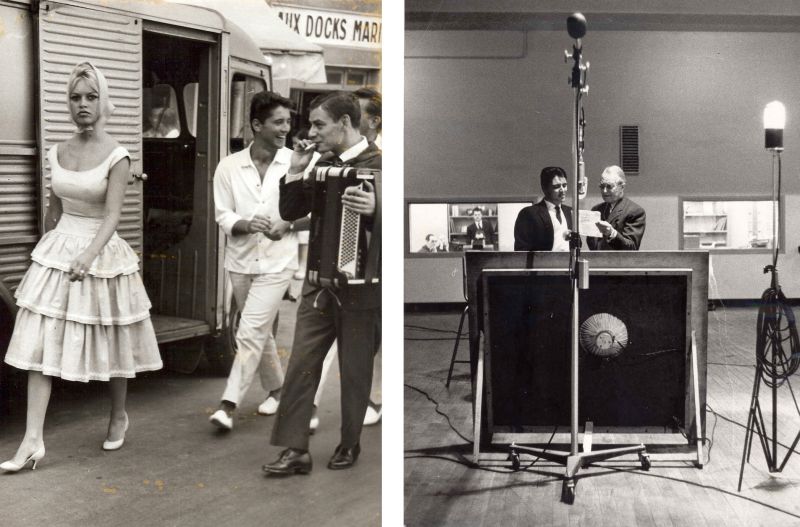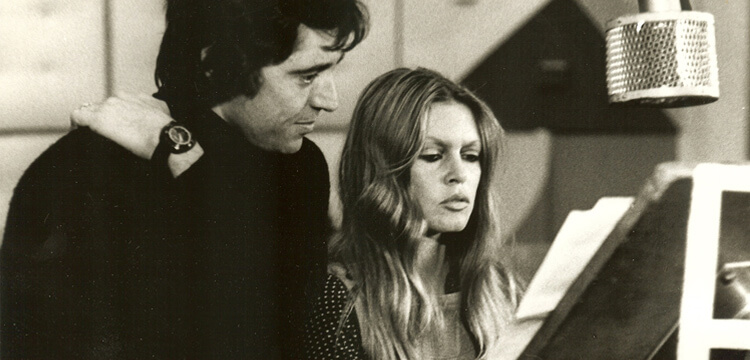
Crooner
Brilliantly « coached » in Paris by a young Henri Salvador with a special gift for suave tunes and slick rhythms, Sacha had the chance of discovering early the appeal of black American music over there. He was just 19 when Ray Ventura dispatched him off to New York in 1952 to learn English and a career in publishing. An invaluable experience. Pell mell Sacha discovered love, bebop, America and also haunting love songs whispered by guys with golden voices called Sinatra, Nat King Cole or Tony Bennett. In the middle of the fifties, Sacha Distel returned from the States with his head full of dreams, his pockets full of ideas and a style which suited him well: Crooner.
Forty years of a smile, elegance, charm and seduction
 "The Good Life" with Tony Bennett (Copyright Jean-Pierre LELOIR)
"The Good Life" with Tony Bennett (Copyright Jean-Pierre LELOIR)
It was finally in the sixties, once the flood of pop singers had passed that Sacha made full use of his velvet voice and also to really be himself. At the same time he let his true personality emerge which the public would recognise for forty years, a smile, elegance, charm, seduction, Sacha showed the artist dormant in him inspired from a whole range of different influences. His talent would consist of expressing a whole gamut of emotions through a unique medium: his voice. Like Sinatra and Tony Bennett, but in his own.
Bow tie, tailored dinner jacket, polished shoes
In France, he would be almost the only one in his field. The laid back attitude of « Toute la pluie tombe sur moi » or the hedonistic grace of « La belle vie » would become the base of a classy but popular style, clever but friendly, profound but tinged with light heartedness. The total impression was far more complicated that it seemed but which a public would identify with. Bow tie, tailored dinner jacket, polished shoes: desperation needed elegance; Sacha knew that better than anyone. Also, out of respect for the public and respect for the profession, he made the effort.
Sacha’s crooning contained everything
 Left: With Brigitte (Bardot) in a street of Antibes on our way to Moustache’s wedding ceremony in 1958 (Copyright LE LYNX)
Left: With Brigitte (Bardot) in a street of Antibes on our way to Moustache’s wedding ceremony in 1958 (Copyright LE LYNX)Right: Sacha with the boss, the great Maurice Chevalier ! (All rights reserved)
Son of the post war years, Sacha also inherited the golden days of Stéphane Grappelli’s Quintette of the Hot Club of France and the "Zazou" era. In his own way, if he represented a frenetic existentialism (Saint-Tropez, Bardot, Jazz, Greco...), he was also in tune with the echoes of the past (music hall, Chevalier, Jean Sablon). Sacha’s « crooning » contained everything and more: Jewish soul, his Slavic background, life’s uncertainty, hardship but also confidence you need to keep and a light-hearted mood. Sacha knew how to portray in his voice; desire, sensuality, tenderness, warmth, intense pleasure, a caress and the elegance of an unmeasured enjoyment of life.
It wasn’t for nothing that the English show business adepts called him « Sacha Sunny Voice ». « The Good Life » was re-released more than four hundred times since it first came out. More than a passion, a medal.
Eric Jean Jean

